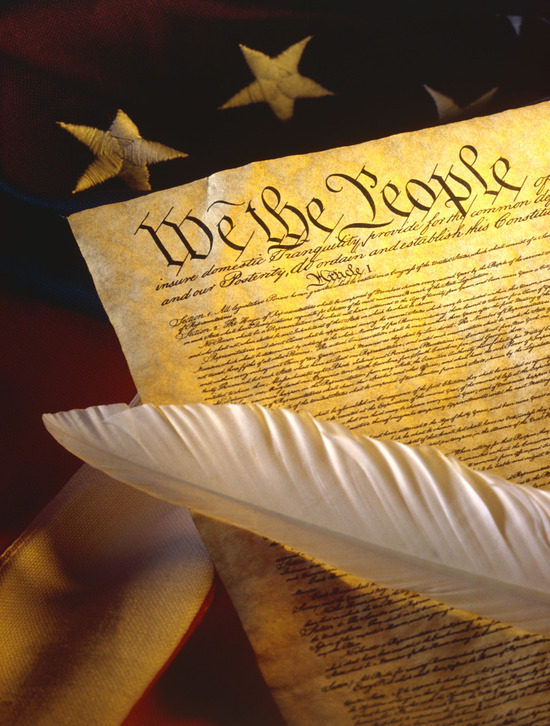Adventists see religious liberty as an essential human right. After all, God endowed humanity with freedom of choice from the very beginning. So we believe it’s best for governments to also support their citizens’ rights to worship based on their convictions.
This isn’t an ideal we simply agree with—we actively support it. The Seventh-day Adventist world church headquarters has an entire department focused on promoting and defending religious liberty.
And Adventists certainly aren’t alone in this. Freedom of Religion has been a global concern for centuries, especially for the early Christian church. People faced imprisonment, torture, or even lost their lives to cruel governments or state churches—simply because they refused to surrender their religious beliefs. And that just shouldn’t be.
So it’s no surprise that numerous faith groups uphold religious liberty. But what are the specific ways Adventists have supported religious freedom throughout the years?
Let’s go through:
- What is religious liberty
- Why religious liberty is important to Seventh-day Adventists
- All about the PARL department
- What the Bible says about religious liberty
- How we can uphold religious liberty today
It’s important to note that according to the Bible, this challenge will never go away. In fact, it warns of a time when religious liberty will be further endangered than ever before (Daniel 7:25).
All the more reason to be aware of this hot topic! So let’s get started.
What is religious liberty?

Photo from Freeimages
Religious liberty is defined as the “freedom of religious opinion and worship.”1 And to get a good grasp of its full meaning and implications, let’s take a look at some history.
Even before it fully became a country, the United States frequently confronted matters of religious liberty. In fact, many of its founding citizens came to America to flee the oppressive state churches of their home countries.2 But despite their own desire for freedom, many of them forced other colonists to convert to their religion.3
Eventually, many Americans wanted the nation to declare Protestant Christianity as its national religion. But leaders soon realized this could empower Protestants to attack other religious groups.4
So in 1789, James Madison created the Bill of Rights, complete with 10 amendments.5 The First Amendment of the U.S. Constitution included the right to freedom of religion.6
It reads:
“Congress shall make no law respecting an establishment of religion, or prohibiting the free exercise thereof…”7
This law ensured that the government wouldn’t intervene with anyone’s religious rights.
Of course, other countries have also made laws about religious liberty. One notable instance was the Edict of Nantes.8 This law gave religious freedom to protestants in France during a time when Protestants and Catholics were in constant conflict.
So even when we look at just a few pieces of history, we can see how foundational something like religious liberty is when it comes to establishing a civil society that values individual freedoms. And Adventists want to do everything we can to defend this concept.
Why is religious liberty important to Adventists?
Adventists believe religious liberty is crucial for numerous reasons. But first and foremost, it’s rooted in the fact that God created humanity with freedom of choice. With love and sincerity being the priorities, He never wanted anyone to be forced into worship.
It is indeed true that in the Garden of Eden, exercising free will resulted in catastrophic consequences (Genesis 3:16-24). That’s how our world became closely acquainted with sin, death, and suffering.
There are those out there who fear religious liberty for similar reasons. They’re afraid that by allowing citizens to choose who and how they worship, which would be the basis for their value system, it might make society harder to control or unify.
Amid that fear, it’s often forgotten that if people are forced to follow someone, it’s highly likely they’re not truly following them at all.
God wants a genuine relationship with all of us. For that to happen, He wants us to choose Him. Even if there’s a risk we won’t.
But for religious and government officials that strive for power and control, this concept is a struggle.
The Roman government persecuted the early Christians for their beliefs.9
They ordered them to worship their gods instead of allowing them to worship differently. If they were caught worshipping God they were captured, tortured, or killed.
Later on, the Romans adopted Christianity, but their intolerance toward those of opposing religions did not change. They slaughtered Protestant Christians for their beliefs during the Spanish Inquisition.
There are countless examples of religious persecution throughout history. From conquistadors targeting Native Americans to the Church of England threatening the Puritans.
Most of these violent and oppressive acts were supposedly done in God’s name. What a sickening way to take His name in vain.
That’s why Adventists wholeheartedly emphasize the importance of religious liberty. Worship of the God we love shouldn’t be built on fear, but on faith and love (1 John 4:18).
We see this kind of freedom as everyone’s right.10 If we want to be able to worship God freely, as we’re so convicted, it’s only fair that we want the same opportunity for others.
But what happens when someone is not permitted to worship freely?
An Adventist organization called PARL steps in to ensure they receive fair treatment.
What is PARL?
PARL stands for Public Affairs and Religious Liberty.11 It was created by the Adventist Church to support and defend religious liberty, and it’s thought to be one of the largest Christian efforts to preserve religious freedom.12
So how does PARL accomplish this?
They help by:13
- Participating in international efforts to advocate for the freedom of religion (ex: Geneva Convention)
- Holding special events to discuss the importance of religious liberty with government officials
- Spreading awareness, such as the production and distribution of Liberty Magazine
- Connecting church members with legal counsel or advice if their religious freedom is not being respected by their employer, educational institution, care provider, etc.
And on several occasions, PARL intervened in Congress’ attempts to pass religious laws.

Photo by Tim Mossholder
For example, in the 1880s and 1920s, Congress tried to pass laws that would forbid most types of business to take place on Sundays.14 This was because most Christians considered Sunday a holy day, and a time to encourage church attendance.
Naturally, because Adventists celebrate the original seventh-day Sabbath as God’s holy day of rest, this could make business more difficult for them, and it could single them out as a group of people worshiping on a different day than the one the government recognized.
But more than anything, if the government appeared to favor one religion or worship practice over another, that would be a violation of the Bill of Rights. And it would make religious liberty in general more difficult to promote.
Fortunately, PARL was able to produce enough signatures to help that legislation get rejected.15
Additionally, PARL has frequently helped Adventists defend their right to honor the Sabbath by abstaining from work and making it a day of worship. They protect employees if their employers insist they work on Sabbath. They also provide opportunities for students to take exams on another day if tests are scheduled for Saturday.
All in all, PARL has been instrumental in maintaining religious freedom for Adventists, and for Christians in general, throughout the world.
Does the Bible support religious liberty?
Even when bringing up the idea of humanity’s freedom of choice, there are some who wonder if religious liberty is indeed a biblically-supported concept. After all, wasn’t the nation of Israel a theocracy? In other words, didn’t the Hebrews’ government require its citizens to worship God?
The answer is a bit complicated. It’s true that Israel was technically a church-state instituted by God. They were commanded to abstain from the pagan worship practices of the nations around them (Exodus 20:2-3)—some of which were outright harmful, perverse, or dangerous.16
Additionally, the Israelites were a nation already identified as believers (Joshua 24:16-21). And rather than enforcing worship to God on the rest of the world, they were to be a light to the nations around them (Isaiah 49:6).
Their main goal was to witness to others about God.
And the world is vastly different today. The world has grown much bigger than a collection of militaristic nations centered around one religion. Due to globalization, more countries are full of people who practice a variety of religions.
And now, instead of spreading the gospel through one nation, God has believers all over the world that lovingly seek to finish this work.
Ancient Israel was ultimately unsuccessful in witnessing to the nations around them. Because of this, Jesus opened the way for everyone, not just what we’d come to call the “children of Israel,” to help spread the gospel (Acts 18:4-6).
As we can find by reading the New Testament, God no longer has a special nation of followers. Instead, people from all over the world choose to serve Him.
It’s not the church’s job to police people, or to punish or condemn them in the name of God. Romans 14:5 encourages every individual to be “fully convinced in his own mind” (CSB). And 1 Corinthians 10:29 cautions against a person’s freedom being “judged by another person’s conscience” (CSB).
Instead, the commission to all believers is to share the gospel, make disciples, and open the door for the Holy Spirit to personally convict each person (Matthew 28:18-20). And it works out much better this way because God knows men’s hearts in a way we never can (1 Kings 8:39). He has no bias against them, He is only seeking their best interest, and He will never violate their freedom to choose their allegiance.
Jesus will never push anyone to accept Him. The Bible says that Jesus merely knocks, leaving it our choice to answer (Revelation 3:20).
How can we help support religious liberty today?
Much of the Bible addresses the issue of religious freedom. So what are the best ways we can apply these biblical principles to the concerns of today?
For one thing, we can see how God has cared for those whom He convicts to stand up for Him in the face of hostile unbelievers or oppressive governments. We can remember people like Daniel, Moses, Paul, and more.
And we can see an example of how to approach people who believe differently in the story of Jesus and the Samaritan woman. Even though she had different beliefs (John 4:20), Jesus approached her kindly. He did not focus on where He knew she was mistaken about things, and instead emphasized the promise of the gospel (John 4:1-26).
And as for specific ways to get involved in religious liberty efforts, many options are available:
- Stay aware of current events, so you can:
- Vote whenever given the chance
- Write letters to government officials
- Sign and share relevant petitions
- Support or volunteer for organizations that help defend religious liberty around the world
- Pray for our government’s leaders
- Become a Church Ambassador
- Report a religious liberty concern to PARL
- Subscribe to Liberty Magazine
But the most important way we can promote the love of God through religious liberty is to model this respect in our daily lives. We can take a genuine interest in every person we meet, listening to their stories and getting to know them. We can model mutual respect and show that God’s love doesn’t discriminate—He cares for everyone, whether they currently acknowledge Him as their Savior or not. So we should, too.
Jesus died for every human being in the name of freedom—namely, to free us from our sins. And He gives us the power to use our free will to make better choices, and to understand what we’re choosing against.
Although He paid a heavy price just for us to have the option of believing in Him, He is against forcing it on anyone. That would defeat the purpose of creating humanity with the ability to choose, so that we could learn to genuinely love.
So instead He waits patiently, gently asking us if we would like to accept His free gift of salvation.
Want to learn more about how the Bible talks about religious liberty, and its role in our world’s future?
Choose an Online Bible Study
Want to keep learning? Find out more about Jesus, humanity, the plan of salvation, and how God loves you enough to sacrifice everything, just to give you a chance to choose Him.
Sometimes it can be hard to know where to start, that’s why we offer free, user-friendly, online Bible study options you can do anytime, anywhere, and at your own pace.
This online Bible school will take you through the major themes of Scripture, breaking down the Bible’s complex concepts into bite-sized pieces, which can lead you toward the answers of life’s more challenging questions.
- https://www.thefreedictionary.com/Religious+liberty. [↵]
- https://www.britannica.com/topic/Pilgrim-Fathers[↵]
- “Religion and the Founding of the American Republic,” loc.gov, The Library of Congress, https://www.loc.gov/exhibits/religion/rel01-2.html. [↵]
- “On this day: James Madison introduces the Bill of Rights,” constitutioncenter.org, National Constitution Center, https://constitutioncenter.org/blog/on-this-day-james-m [↵]
- https://www.britannica.com/topic/Bill-of-Rights-United-States-Constitution [↵]
- https://constitutioncenter.org/blog/on-this-day-james-madison-introduces-the-bill-of-rights. [↵]
- https://constitution.congress.gov/constitution/amendment-1/#:~:text=Congress%20shall%20make%20no%20law,for%20a%20redress%20of%20grievances. [↵]
- https://www.britannica.com/event/Edict-of-Nantes [↵]
- https://www.britannica.com/topic/Christianity/Relations-between-Christianity-and-the-Roman-government-and-the-Hellenistic-culture[↵]
- https://adventist.news/news/promoting-religious-liberty-around-the-world [↵]
- https://www.adventistliberty.org/what-is-parl [↵]
- https://www.adventistliberty.org/history [↵]
- https://www.adventistliberty.org/what-is-parl [↵]
- https://www.adventistliberty.org/history [↵]
- https://www.adventistliberty.org/history [↵]
- Leviticus 18 & 20; Deuteronomy 12:30, 31; 2 Kings 21:6; 23:10 [↵]
Related Articles
More Answers
What is the Role of Laypeople vs. the Role of Clergy?
The word “laity” comes from the Greek word laikos, which means “of the people.”
Do Seventh-Day Adventists Have “Rules” For Clothing?
Many religions have guidelines on dress, but what about the Adventist Church? Discover how Adventists choose to dress based on biblical principles.
11 Reasons People Become Seventh-day Adventists
Curious why many people become Adventists? Here are elements of Adventist beliefs, values, and mission often reflected in people’s decisions to join.
What’s the Seventh-day Adventist General Conference Session?
At the General Conference Session, Adventist delegates from around the world gather to assess the state of the organization, pray, and discuss current issues. Here’s how it works.
How Adventists View the End of the World
The end of the world is no fun to think about. But here’s how we can actually find hope and comfort in what’s to come.
What Is an Adventist Medical Missionary?
A medical missionary in the Adventist Church is someone who cares for the medical needs of people as a way of showing the love of Jesus. They may travel to another country, or even just serve in their hometown.
Is the Seventh-day Adventist Church Protestant?
Learn how the beliefs of the Seventh-day Adventist Church align with the “5 solas” of Protestantism.
Are Seventh-day Adventists Evangelicals?
According to its origins and definition, evangelicalism is about following Jesus and the Bible and sharing the Gospel through the way we live our lives. Adventists wholeheartedly harmonize with these principles.
Could Anything Keep Me from Becoming an Adventist?
We are each saved through Christ. But when it comes to church membership, are there certain beliefs or expectations to become an Adventist?
Do Seventh-day Adventists Have “Rules”?
We uphold principles we believe will help us maintain a closer relationship with Jesus and His Word. Learn how these principles guide Adventist lifestyles.
Do Seventh-day Adventists Have “Rules” For Marriage?
Around the world, many cultures and religions have various marriage traditions, expectations, or even rules when it comes to choosing a partner, planning the wedding, extended family logistics, or a number of other things.
Can a Seventh-day Adventist Marry a Non-Adventist?
Yes. Seventh-day Adventists are not under any official rules that dictate who they can or cannot marry. This is a personal, life-altering decision between the couple and God.
What Adventists Believe About Alcohol and Tobacco Use
The Seventh-day Adventist Church has historically discouraged the use of alcohol and tobacco. Even before the church started in 1863, its leaders were realizing the negative effects of these substances.
Jewelry—Why Do Many Seventh-day Adventists Choose Not to Wear It?
If you walk into a Seventh-day Adventist church service, you might notice that many people aren’t wearing earrings, bracelets, necklaces, or sometimes even wedding rings.
International Pathfinder Camporee
Youth aged 10-15 in the Adventist Church’s global Pathfinder program look forward to the International Camporee every 5 years. This event brings together Pathfinders from around the world for exciting activities.
How Adventists interpret Bible prophecy
Bible prophecy conjures up a variety of emotions in people. For some, it feels exciting or mysterious.
Moviegoers’ Guide to The Hopeful: The Facts Behind the Film
Learn where and when you can watch The Hopeful and how to get tickets. Already seen it? We’ll uncover the real story that inspired this film.
How Are Seventh-day Adventists Different from Other Protestants?
As a Protestant Christian denomination, the Seventh-day Adventist Church regards the Bible as the ultimate guide and looks to Jesus Christ as the only way to salvation. We do have some differences of belief or interpretation when it comes to topics like Bible prophecy, end-time events, the Sabbath, and a person’s state after death.
How Adventists Handle Death and Funerals
Most Seventh-day Adventist funeral services are similar to those of other Protestant denominations, such as Methodists, Baptists, or Presbyterians, but you might find a few differences or unique nuances.
Adventist Culture
Many Seventh-day Adventists adhere to specific lifestyle principles that can make them stand out from those in other Christian denominations. Whether it’s going to church services on Saturday or eating the popular Adventist entrée of “haystacks.”
Do Adventists Observe Easter-Related Holidays?
Jesus Christ’s resurrection, celebrated on many Easter-related holidays, is central to the beliefs of the Seventh-day Adventist Church. And that means we seek every opportunity to remember it.
An Overview of Seventh-day Adventist Higher Education
The Seventh-day Adventist Church has about 118 tertiary schools around the world. Though many of them are within North America, you’ll also find Adventist universities in countries across the world—places like Croatia, Austria, Brazil, Madagascar, and the Philippines.
The Ten Commandments from a Seventh-day Adventist Perspective
Ever eaten a salad and gotten a big piece of green stuck in your teeth? And you didn’t realize it was there until you looked in the mirror? (Because no one ever told you!)
The Benefits of A Seventh-day Adventist Academy
Adventist academies are high schools (grades 9-12) that are owned and operated by the Seventh-day Adventist Church.
Are Seventh-day Adventists Christians?
Yes, the Seventh-day Adventist Church is a Protestant Christian denomination formed in 1863. Just like other Christians, we believe that Jesus Christ is our Savior and seek to follow the principles of the Word of God.
Adventist Movies: Where Faith and Film Meet
The Adventist Church uses film to share our faith and uplift positive values. Learn more about specific Adventist-produced films and where to find them.
Do Adventists Celebrate Christmas?
In general, most Seventh-day Adventists do celebrate Christmas.
Since our denomination doesn’t have specific guidelines about holidays, it’s up to each member to decide whether to celebrate it based on their personal convictions and study of the Bible.
What Does the Bible Say About Modesty
Seventh-day Adventists and Christians in general try to ensure their outward presentation and lifestyle glorify God. This often involves daily habits like the ways we hold conversations, the ways we dress and accessorize, and the ways we regard other people when we’re out and about.
How Do Adventists Make Movie and Music Choices?
How do Adventists decide what music to listen to and which movies to watch? Learn how Bible principles can help us make better entertainment choices.































